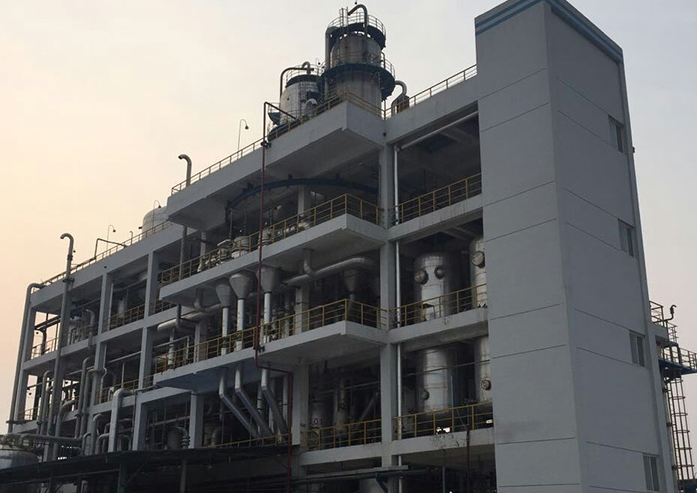Hydrogen peroxide and Accelerated Hydrogen Peroxide (AHP) are both effective disinfectants used in various settings, from households to healthcare facilities. While they share some similarities, there are significant differences in their composition, efficacy, and applications. This article explores these differences to help you understand which one might be the best choice for your needs.
What Is Accelerated Hydrogen Peroxide
Accelerated hydrogen peroxide, or AHP, is a blend of hydrogen peroxide with other ingredients. This blend can increase the germicidal effects of hydrogen peroxide significantly, making it highly effective as a multi-purpose disinfectant. AHP are patented combinations of ingredients, with different, unique formulations.
Uses of Accelerated Hydrogen Peroxide (AHP)
Accelerated hydrogen peroxide (AHP) formulations serve as multi-purpose disinfectants with versatile applications across various industries.
At low hydrogen peroxide concentrations, AHP is effective for disinfecting environmental surfaces and non-critical equipment. At higher concentrations, it functions as a high-level disinfectant.
Key applications of AHP include:
- Water Treatment: Prevents the growth of legionella, pseudomonas, and other bacteria by removing biofilm from essential pipework.
- Hand and Surface Disinfection: Provides effective protection against bacteria, enveloped viruses, and Coronavirus.
- Agriculture and Horticulture: Ensures plant health through irrigation and water systems, while also disinfecting equipment and surfaces.
- Livestock: Maintains clean drinking systems and surfaces, safeguarding animals and their housing from harmful bacteria.
- Leisure: Disinfects facilities such as gyms, leisure centers, swimming pools, bars, and restaurants.
- Food and Drink: Ideal for CIP (clean-in-place), fogging applications, and hard surface disinfection.
- Shipping: Used for disinfecting onboard drinking water supplies, tanks, and hard surfaces.
The adaptability of AHP formulations, with varying hydrogen peroxide concentrations, demonstrates their utility across a wide range of industries and sectors.
Composition and Stability
Hydrogen Peroxide
Hydrogen peroxide (H₂O₂) is a simple compound consisting of two hydrogen atoms and two oxygen atoms. It is available in various concentrations, typically ranging from 3% for household use to higher concentrations for industrial applications. One of the key characteristics of hydrogen peroxide is its tendency to decompose quickly, especially when exposed to light and heat, releasing oxygen and water.
Accelerated Hydrogen Peroxide
Accelerated Hydrogen Peroxide (AHP) is a more complex formulation that combines hydrogen peroxide with surfactants, wetting agents, and chelating agents. These additives not only stabilize the hydrogen peroxide but also enhance its disinfectant properties. The result is a solution that is more potent and has a longer shelf life compared to standard hydrogen peroxide.
Mechanism of Action
Hydrogen Peroxide
Hydrogen peroxide works by releasing oxygen when it comes into contact with organic matter. This oxidative action effectively kills bacteria, viruses, and fungi by damaging their cell walls. The characteristic bubbling seen when hydrogen peroxide is applied to wounds is due to the release of oxygen gas, which helps in the mechanical removal of debris.
Accelerated Hydrogen Peroxide
Accelerated Hydrogen Peroxide also releases oxygen, but the presence of surfactants and other additives enhances its ability to break down cell walls and biofilms. This makes AHP more effective and faster-acting compared to standard hydrogen peroxide. Additionally, AHP solutions provide residual antimicrobial activity, offering prolonged protection after application.

Applications
Hydrogen Peroxide
Hydrogen peroxide is widely used for a variety of purposes:
- Household Use: It is commonly used for disinfecting surfaces, cleaning wounds, and as a bleaching agent.
- Medical Use: In healthcare settings, hydrogen peroxide is used at lower concentrations to clean and disinfect wounds and medical equipment.
- Industrial Use: Higher concentrations of hydrogen peroxide are used for bleaching textiles and paper, and as a sterilizing agent in various industries.
Accelerated Hydrogen Peroxide
Accelerated Hydrogen Peroxide is preferred in settings where high-level disinfection is required:
- Healthcare: AHP is extensively used in hospitals and clinics for disinfecting surfaces, medical instruments, and even as a sterilizing agent.
- Veterinary and Animal Care: It is used for cleaning and disinfecting animal housing, equipment, and areas where hygiene is critical.
- Commercial and Institutional: AHP is applied in schools, gyms, food processing facilities, and other places where thorough disinfection is essential.
Efficacy and Safety
Hydrogen Peroxide
Hydrogen peroxide is effective against a wide range of microorganisms, including bacteria, viruses, and fungi. However, it can cause irritation to the skin and mucous membranes and has limited residual activity, meaning it does not provide prolonged protection after application.
Accelerated Hydrogen Peroxide
AHP offers enhanced efficacy with faster kill times and broader-spectrum antimicrobial activity. The additives in AHP formulations not only boost its disinfectant properties but also reduce toxicity, making it safer for frequent use. Additionally, AHP provides residual activity, offering prolonged antimicrobial protection after application.
Environmental Impact
Hydrogen Peroxide
Hydrogen peroxide is considered environmentally friendly because it decomposes into water and oxygen, leaving no harmful residues. However, its rapid decomposition can limit its effectiveness in some applications.
Accelerated Hydrogen Peroxide
AHP is also environmentally friendly and biodegradable. The stabilizers and additives used in AHP formulations do not leave harmful residues, making it a sustainable choice for disinfection.
Conclusion
While both hydrogen peroxide and Accelerated Hydrogen Peroxide are effective disinfectants, AHP offers several advantages over standard hydrogen peroxide, including enhanced efficacy, stability, and safety. These benefits make AHP a preferred choice in healthcare and other high-demand settings where rigorous disinfection is crucial. However, for general household use, standard hydrogen peroxide remains a practical and cost-effective option.
If you are considering upgrading your disinfection systems or need more information, please contact us. As a leading supplier of high-quality disinfection products, we are here to help you find the perfect solution for your needs.
















